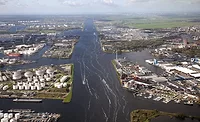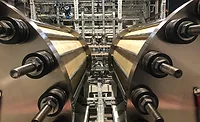Nouryon Partners on Green Hydrogen Study

AMSTERDAM — BP, Nouryon (formerly AkzoNobel Specialty Chemicals) and the Port of Rotterdam have joined forces to explore the opportunity of making “green hydrogen” via water electrolysis for BP’s refinery in Rotterdam, the Netherlands, which has the potential for significant reductions in CO2 emissions.
The refinery currently uses hydrogen made from hydrocarbons to desulfurize products. Replacing this entirely with green hydrogen produced from water using renewable energy could potentially result in a reduction of 350,000 tons of CO2 emissions per year based on current circumstances.
The parties have signed a memorandum of understanding to study the feasibility of a 250-megawatt water electrolysis facility to produce up to 45,000 tons of green hydrogen yearly using renewable energy. It would be the largest of its kind in Europe.
Nouryon would build and operate the facility based on its leadership position in sustainable electrochemistry. The Port of Rotterdam would facilitate local infrastructure and investigate options for further development of a green hydrogen hub in the area. The partners intend to take a final investment decision on the project in 2022.
Knut Schwalenberg, Managing Director Industrial Chemicals at Nouryon, said, “This partnership builds on our expertise in electrolysis technology to open up new value chains. With green hydrogen, we can provide sustainable solutions to our customers ranging from low-carbon fuels and industrial processes to new forms of circular chemistry.”
Looking for a reprint of this article?
From high-res PDFs to custom plaques, order your copy today!





